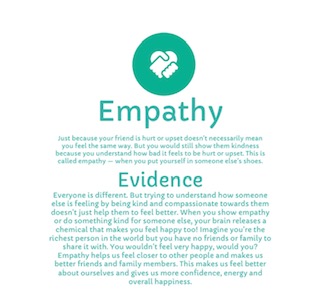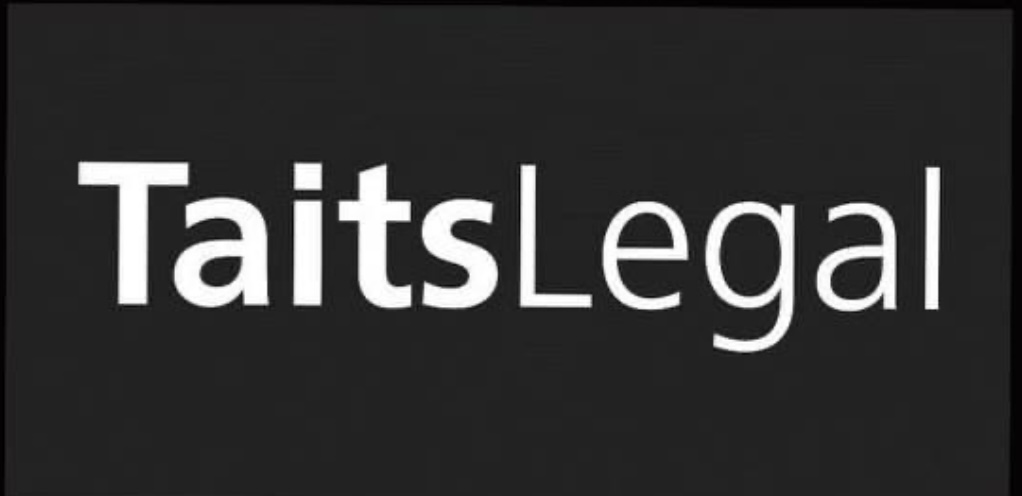Newsletter T3W2
Acknowledgement of Country

Today we acknowledge and pay our respects to the First Peoples, the traditional custodians of the lands and waterways and thank them for their continued hospitality.
We acknowledge and celebrate the continuation of a living culture who have lived with Creator God through creation of land, sea, waterways and life.
Prayer

A prayer for God’s love to bring unity in diversity.
“God, thank you for each of the athletes who has travelled to the Olympics from around the world.
The diverse nations, cultures, types of sports, and personalities they represent show us a variety of ways to participate in the Olympic Games that the whole world loves.
As the athletes gather, please meet them where they are with your loving presence.
May your love prevail as they relate to each other. Help them be kind to each other, listen to each other’s stories, and learn from each other’s experiences.
Give them the goodwill they need to compete with mutual respect and excellent sportsmanship.
Through the power of your love, may you connect them in friendships and unify them as they work toward their goals together.
When people watch the Olympics, may they be inspired by the spirit of your love at work in your global human family, and may that promote more peace in our world.”
Amen
Leadership & Stewardship

Principal's Message
Dear members of the OLHC school community,
I had the pleasure of spending some time with the 3 Foundation classes on Tuesday. I read a picture book, “What do you do with an idea?” and then told a family story from my childhood. There wasn't any need to put “mayonnaise” on the yarn, but it was fun watching their reactions to Mr Madden being a bit naughty. Why share this? School and life in general has seemingly gotten so serious and formal. I worry that we (and I mean us as teachers and parents,) can be in too much of a hurry for the children to grow up. One thing that always straightens me up is to look at the date of birth of our kids. We have children in our school born in 2018!! For goodness' sakes, I still have unpacked boxes in the shed that are older than that. My point is they are young and innocent in many ways and there is NO hurry for that to be lost. Through flexibility, spontaneity, creativity and a bit of humour we can embrace these times and make school a place of learning and fun. Easier said than done some days, but maybe half the battle is being reflective enough to consider it as an option.



Important Dates
Term 3
Friday 26th July - Parent Teacher Conferences - Student Free Day
Monday 29th July - Review Writing Day 2 - Student Free Day
Friday 2nd August - Green & Gold Dress-up Day
Friday 2nd August - 1JS Assembly
Sunday 4th August - Eucharist Commitment Mass @ 9am @ St Pius X
Wednesday 7th August - Yr 4 Tree Planting
Friday 9th August - 3CM Assembly
Saturday 10th August @ 6pm - Eucharist Celebration OLHC
Friday 20th September - Staff Maths PD - Student Free Day
Teaching & Learning @ OLHC
A Message from Mr A
Week 2 Term 3
GRADE 1- MINI OLYMPICS
On Thursday our Grade 1 cohort participated in a mini Olympics event as a kick off to their Inquiry unit, Healthy For Life. There were some fantastic dress-ups as the students were invited to come as their favourite sports person/sport. We were lucky to have some of the Grade 6 leaders on board to assist with the running of events and there were some sharply dressed officials getting around the place.
Well done Grade 1 team!















GRADE THREE- ONE DAY STUDIOS
On Wednesday our Grade 3 cohort jumped on the school bus and headed down to One Day Studios at Fletcher Jones. This runs in line with their Inquiry unit, Frame by Frame. The students participated in a workshop based on animation. The students were pumped after the event, and it gave them some ideas and motivation for their stop-motion pieces at the end of the term.
Well done Grade 3 team!

















PARENT-TEACHER CONFERENCES/SCHOOL REVIEW
Our parent-teacher conferences kicked off on Wednesday evening and concludes on the school closure day, Friday of Week 2. A reminder that Monday is also a school closure day. This is part of our 5-year review process where we review the school's performance against the Characteristics of a Highly Effective Catholic School framework. A time consuming process but also a good opportunity to reflect on the progress of the school over the last five years.
Have a great long….long weekend!
Thanks,
Naish


Technology Toolkit with Mrs Fitzgerald and Mrs Murfett
New technology updates, cyber safety tips and snapshots of the learning experiences happening in the digital classroom. Let’s work together to make the online space a positive space! If you have any questions or concerns please contact us:
Mrs Sarah Murfett: smurfett@olhcwarrnambool.catholic.edu.au
Mrs Ellen Fitzgerald: efitzgerald@olhcwarrnambool.catholic.edu.au
Tips to Reduce your Family's Screen Time at Home
The following are the three tips suggested in an article written for ‘The Conversation’ by. To read the whole article please follow the link below:

Faith & Culture


Parish Office Hours: 9am - 4pm Monday - Friday
P: 5562 2231
E: southwestcoast@ballarat.catholic.org.au
Weekend Masses
Saturday Vigil
6:00pm OLHC, Warrnambool East
Sunday Morning
9:00am Infant Jesus, Koroit
9:00am St Pius X, Warrnambool West
10:30am St Joseph’s, Warrnambool
10:30am St Patrick’s, Port Fairy
6:00pm St Joseph’s Warrnambool
*11:00am St Anne’s, Purnim
2nd Sunday of the month (Eucharist)
Weekday Masses
NB: MASS OF THE DAY IS REPLACED WHEN A FUNERAL IS HELD AT THAT CHURCH
Tues 10:00am St Pius X
Wed 10:00am St Joseph’s
Thu 10:00am OLHC & 11:00am Mercy Place
Fri 10:00am St Joseph’s
Sat 10:00am OLHC

Updated Changes - Eucharist Dates
We have been informed by the parish that there have to be some changes to the dates and times of the Sacrament of Eucharist. Sorry for any inconvenience this might create.
Commitment Mass on August the 4th at St. Pius church at 9 am
Eucharist Celebration Mass at OLHC church on Saturday, 10th August at 6 pm
Kind regards,
The Sacrament Team

Nothing Will Be Wasted
(John 6: 1 - 15)
One of the disciples – it was Andrew, brother to Simon Peter – said, “There’s a little boy here who has five barely loaves and two fish. But that’s a drop in a bucket for a crowd like this.” ... When the people had eaten their fill, Jesus said to his disciples, “Gather the leftovers so nothing is wasted.” They went to work and filled twelve large baskets with leftovers from the five barely loaves. (John 6: 8 - 9, 12 - 13)
It’s not a fair comparison, I grant you: but Elisha fed a hundred people with twenty loaves, and Jesus fed 5,000 with five loaves. If you do the math, it explains why people were even more anxious to follow Jesus. Plus, there are the inexplicable twelve baskets left over at the end of the meal that Jesus orchestrated. No wonder they wanted to carry him off and make him king.
But Jesus didn’t come to regulate the economy of Israel or to provide welfare-to-work programs. He didn’t come to set up a medical clinic or to treat mental illness. Though Jesus does feed some of the hungry and heal some of the sick, by no means did he put an end to suffering in his time or for all time. He left that challenge up to his followers. Jesus simply presents himself as the source of divine abundance and invites us to come to the table and eat. This table’s been serving meals for two thousand years, billions have been fed, and there’s no end in sight to the feast.
What kind of hunger do you bring to the Eucharist? How have you been fed?

Mangia! “Eat Up!”
(John 6: 8 - 9, 12 - 13)
A guy I know grew up believing his grandma was with Jesus when he fed the 5,000. He came to that belief because whenever that particular gospel would be read, everyone in the family whispered, “Grandma musta’ been there!” And they would laugh.
They all knew that no matter how many people arrived for dinnertime – even unexpectedly – everyone ate and there was always plenty left over. “My family was never rich,” my acquaintance said, “especially when my mum was growing up, but they never felt poor, either.”
Some people have a sense of abundance, that there’s plenty of life to go around and they love to share what they have. Others are Scrooges who hoard everything, worrying that there can never be enough to satisfy. The apostles were skinflints when Jesus asked them to start offering what little they could muster. But then food started showing up, and everyone had plenty.
Some people in the church have those same attitudes about God’s grace. They believe that grace is so rare that we have to hoard it and dole it out piecemeal only to the most deserving. But others take their cue from Jesus, who fed the 5,000-plus on a moment’s notice: they realise that in God there is no skimping. The God who created the countless stars in the sky and who pours life into all Creation is no miser. Open your heart; there’s plenty for all.

Wellbeing

If you want to learn to ride a skateboard or get better at maths, you need to practise. It’s the same when you want to feel happier!
Here are some easy ideas to give Gratitude, Empathy, Mindfulness and Emotional Literacy a try every day. Because the more you practise, the better you will feel.
Let's Practice!






How to support children with ADHD, from Andrew Fuller
ANDREW FULLERCLINICAL PSYCHOLOGIST
Clinical psychologist and family therapist Andrew Fuller explores practical ways to support our neurodiverse children and young people to reach their potential.
Some of these kids will have formal diagnoses of attention deficit and hyperactivity disorder (ADHD) with hyperactive or impulsive actions or inattention.
These are incorrectly labelled as ‘deficit disorders’ but are more accurately variations of the range of human experience with advantages as well as obstacles.
There are many factors that may play an important role in inattentiveness or hyper-activity, including sleep deprivation, lack of physical care or exercise, neurochemical imbalances, fear and worries about school. There are many other ways to support these kids that do not always involve medication.
One strategy is for young people to know their learning strengths and how their brain works to help focus them and increase academic results.
These kids are like belly buttons
It has taken more years of clinical psychology than I care to mention to finally realise that these kids are like belly buttons. Some are ‘innies’, and others are ‘outies’. We notice the ‘outies’ much more than the ‘innies.’ That’s because they are louder.
The ‘innies’
‘Innies’ are dreamy people who can appear not to listen and are more likely to obtain a diagnosis involving inattentiveness. They have short attention spans for regular events and hate doing boring things.
When some ‘innies’ try to concentrate, the level of activity in their frontal lobes decreases. Their brain turns off when it should be turning on.
In terms of learning, ‘innies’ often struggle with:
- Organising: can start but not finish things
- Time management and estimation
- Prioritising and sequencing
- Focusing and shifting attention
- Sustaining effort
The ‘outies’
‘Outies’ often gain diagnoses involving hyperactivity or impulsivity. Being an ‘outie’ can be like owning a sportscar fitted with the brakes that would struggle to stop a scooter.
‘Outies’ often struggle with:
- Controlling their impulses
- Managing when things are quiet and settled
- Shame and feelings of having revealed too much about themselves
One of the strongest, long-term predictors of well-being and resilience for both ‘innies’ and ‘outies’ is to help them be successful in school. Unassisted or unsupported, their long-term prospects can be worryingly bleak.
Converting Neurodiversity into Neuro-advantage
Neurodiversity gives humans a survival advantage through increasing flexibility and adaptability. We are not born to all think the same way. Our collective neurodiversity is a neuro-advantage.
These kids have energy to burn. They turn the volume up to eleven and keep it there. They wake up early, ready to fly. Others heroically hold it together all day long and then collapse into meltdowns later in the day or evening.
We often think about mindful calming as a process of slowing and calming. For some of these kids the more quickly experiences happen, the more able they are to focus and be engaged. Despite this, they are often mentally tired. It is a tough combination being tired and restless at the same time. The accelerator pedal is close to the floor, but it takes a lot of work to keep the steering working.
Neuro-advantages
In a world where people are often casually offhand, these kids are exuberant enthusiasts.
Hyperfocus means that they can focus on a task for hours on end, tuning out everything around them. Of course, this can interfere with sleep at times.
Helping them to see the value of their laser-like focus and then knowing how to broaden their thinking and to think creatively is a great neuroadvantage.
I admire the courage and bravery of these kids. Many of them will stand up for what they believe in and have a strong sense of justice. The obstacles they face in life mean that with support, they will become highly resilient.
Generally, they have a sensitively attuned sense of empathy and loyalty to people that they trust and who trust them.
How parents can help
These kids live their lives on the edge but that’s where the interesting things happen.
Neurodivergence tends to run in families and is often expressed differently in boys and girls. While neurodivergence bestows advantages, it can be hard work being non-mainstream. We need to celebrate differences while also helping them to fit in. We need to be careful to protect against an increased risk of depression and deprived sleep. At times their tendency to hyper-focus means they may ruminate on gloomy thoughts.
I have written about parenting these tricky kids in my books. The long-term aim is not for parents to manage these kids but for them to manage themselves.
Highly reactive young people need more positive life events. They need teachers and parents who are the antidote to the negativity they receive.
Living with these kids is challenging. Some don’t settle and they don’t sleep for long. For some, the completion of an hour of homework takes four hours with screaming. They live in messy rooms, write work projects in erratic handwriting and have chaotic life schedules. Parenting them is like trying to hold on to a squiggling salmon.
Learning strengths can help to direct their efforts towards their areas of strength. Complete the analysis of learning strengths at www.mylearningstrengths.com and use the free letter to create a conversation about building on the identified strengths. Discuss these with your child’s teacher(s). A full report is also available outlining strategies, strengths, and possible future career areas.
Spatial reasoning
Often an area of learning strength as they can often think more powerfully in images than in long strands of words. Using visuals rather than words, drawing, colouring, trail making, join the dots are some ways they can settle. Creating schedules with different colours for different activities can be helpful.
Increasing this learning strength will also promote their ability to ‘read’ other people.
Perceptual and motor skills
Careless or clumsy? While these kids can be quite physical, they can also be quite accident prone. Developing this learning strength through sport, rock wall climbing, martial arts or high intensity training benefits their learning.
These kids often prefer to do things rather than sit back and reflect on things. Their high-octane energy levels mean they are usually keen on physical activities and sports.
Individual sports will suit some of them more than team sports where higher levels of people smarts and verbal negotiation are required.
Dance, table tennis, badminton, martial arts movements, rapid tai chi, finger movement games and standing or walking will usually help these kids to focus or settle.
Computer games such as Pokémon GO, Wii Fit Zumba Fitness, Dance Dance Revolution and Fitness Boxing may also be helpful.
Some will seek out sensations if they feel distressed, others will avoid closeness and will react powerfully if someone invades their personal space, and others will use physical means to distract themselves. Knowing their preferences in advance is incredibly advantageous.
If there are difficulties in handwriting, spatial skills, fine motor development or sensory perception, further assessment may help.
Concentration and memory
Most of these kids underachieve at school because of variable concentration. However, they are able to develop a vice-like focus on things that fascinate them.
Exercise will help some. Others will benefit from reminders on smart phones and devices to keep track of time and to remind them to complete or shift to different activities or tasks.
They need consistency but also need stimulation to pay attention. The aim is a state of relaxed, alert stimulation.
Their heightened stress hormones decrease immunity and activity in their hippocampus, often resulting in memory problems.
Binaural beats, puzzles, memory quizzes, doodling, knitting, and fidget spinners are some ways to help these kids focus and learn.

Forensic sciences may interest some; logic puzzles and ethical dilemmas can all help develop this learning strength. Chess is the best game for improvement of strategic and logical thinking. Code Hero, Portal and Portal 2, The Legend of Zelda – Kingdom of Tears are great strategy and thinking type games.
People smarts
A common misunderstanding is that neurodivergent kids always have poor interpersonal skills. This is not true. Some are highly tuned into others, pick up on the feelings of others accurately and are deeply sensitive.
Girls with attention issues can become prone to rejection sensitivity and become anxious and lose confidence in their own judgement in social settings. Boys may be more likely to express this by becoming oppositional. For these kids, moods and negativity are highly contagious. Be the antidote.
An accepting peer group is essential for these kids to develop people smarts. Cynicism and sarcasm are destructive forces in these kids’ lives. Never use them.
Some of these kids have interpersonal problems because it is generally not helpful to say to other people everything you think. Their energy and impulsivity can be seen by others as rudeness and thoughtlessness.
Games such as Slenderman, Flappy Bird, Tap the Frog and Ant Smasher help students to recognize their emotional reactions to different experiences and develop awareness about the physiological component of emotions.
Learning ‘people reading’ and conversational skills is a major long-term advantage.
Language and word smarts
This learning strength can be developed through theatre sports, acting and debating. The intensity of life for some of these kids means they seek calm and refuge in graphic novels. Others write and illustrate diaries and notes. I suspect that all great poets and quite a few songwriters are neurodivergent.
Word games, crossword puzzles, find the word games, graphic novels, and Wordle are just some of the activities that develop this further.
Some neurodivergent kids become avid readers as it helps them to understand mysteries in their personal world.
Number smarts
Relate numbers to activities – distance, speed, force, impact. You will often get further in this area assisting the active kids to develop trails, jumps and skate ramps than by talking about numbers abstractly. Try to include a physical option outdoors wherever you can.
Estimation games, measurement activities, surveying, mapping, and sudoku will all help these kids to focus.
Computer games such as Farming Simulator are good for stretching number smarts. It allows players to work as a farmer who raises livestock and grows and sells crops to earn money. Players can control farm machinery and breed animals in the game.
In summary too many of our neurodivergent kids with attention issues conclude they are not clever and can’t succeed at school. This is not true. It takes some time and planning to create a clear learning success plan, but the payoffs are substantial.
Careful thought about helping them identify and build learning strengths makes a major longterm difference to their lives.
At school they may need extra time on tests, a quiet room, oral clarification of tasks and assistance to focus on important issues.
Of course, the strategies mentioned in this paper don’t only apply to young people. They may also help some adults.
Copyright Andrew Fuller.
A note from Andrew
I am inspired by the work of Professor Amanda Kirby and Liz Keable and recommend their work to you. Both generously share their research on LinkedIn.
I also value my discussions with Kerry Gilmore and Jess Duff who helped in preparing this paper and I express my gratitude to them.
About Andrew
Andrew is a clinical psychologist and family therapist, author and speaker, and a regular contributor to The Parents Website.
More tips about how to maximise your success can be found at:
Andrew’s websites
www.andrewfuller.com.au
www.mylearningstrengths.com (45,000 young people in the past year discovered their learning strengths and found how to increase success and motivation).
Books for parents
Tricky Behaviours
The A to Z of Feelings,
Unlocking Your Child’s Genius (Bad Apple Press)
Parents & Friends Association

Term 3 PFA Events
- Father's Day Breakfast & Stall Friday 30th August
- School Disco Friday 6th September
- Grandparents Day Thursday 19th September
- Second Hand uniform sale is to be confirmed
Bunnings BBQ Thank You!
A big shoutout to the following parents for their assistance with the Bunnings BBQ during the school holidays.
Melissa Jess
Matt Pitt
Dean Collishaw
Danny Talbot
Jess Kerr
Yolande Hales
Sara Hare
Kim Hildebrandt
Emma & Ben Miller
Jacinta Gardner
Richard Hodson
Paul Ryan
Jess Conheady
Thomas White
OLHC Netball Mini's Program
We're excited to announce that our OLHC Netball Minis program started on the first Monday back of Term 3 and will run every Monday throughout the term, excluding next Monday 29th due to a student free day!
The kids look fantastic decked out in their shining star t-shirts, ready to learn new skills and have a ton of fun!
We can't wait to see our future netball stars in action. Let's make this term amazing!




Recycle Station
Community

Birthdays

This Weeks Birthdays
Yr 1
Remi Keogh
Liam Moloney
Yr 2
Willow Krepp
Yr 4
Lucy Coxall
Yr 6
Layla Turner
Connor Sheen
Elky Veale
School Sponsorship











School Forms & Policies
Mobile Phone Policy & Form
Medication Administration Form
Asthma Action Plan
Camps, Sports & Excursions Funding Form
OLHC Lunch Order Menu 2024
Please clearly label your child's Name, Class, Order & Total Cost on a brown paper bag with the correct money inside.
Country Bus Travel Application
Jill Burgess - Administration/Bus Coordinator @ Brauer College
P: 5560 3888
E: Jillian.Burgess@education.vic.gov.au
TheirCare Before & After School Care - plus Vacation
& School Closure Day Care

WCC After School Care Information
LOWES Uniform Price List
OLHC 2024 Prospectus
